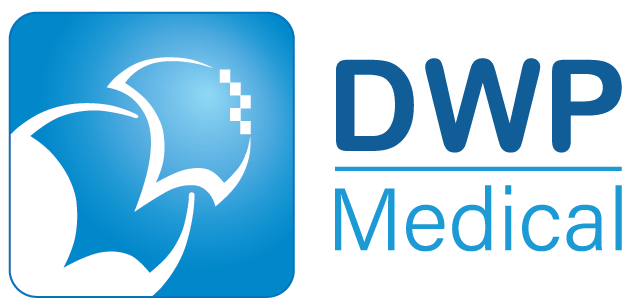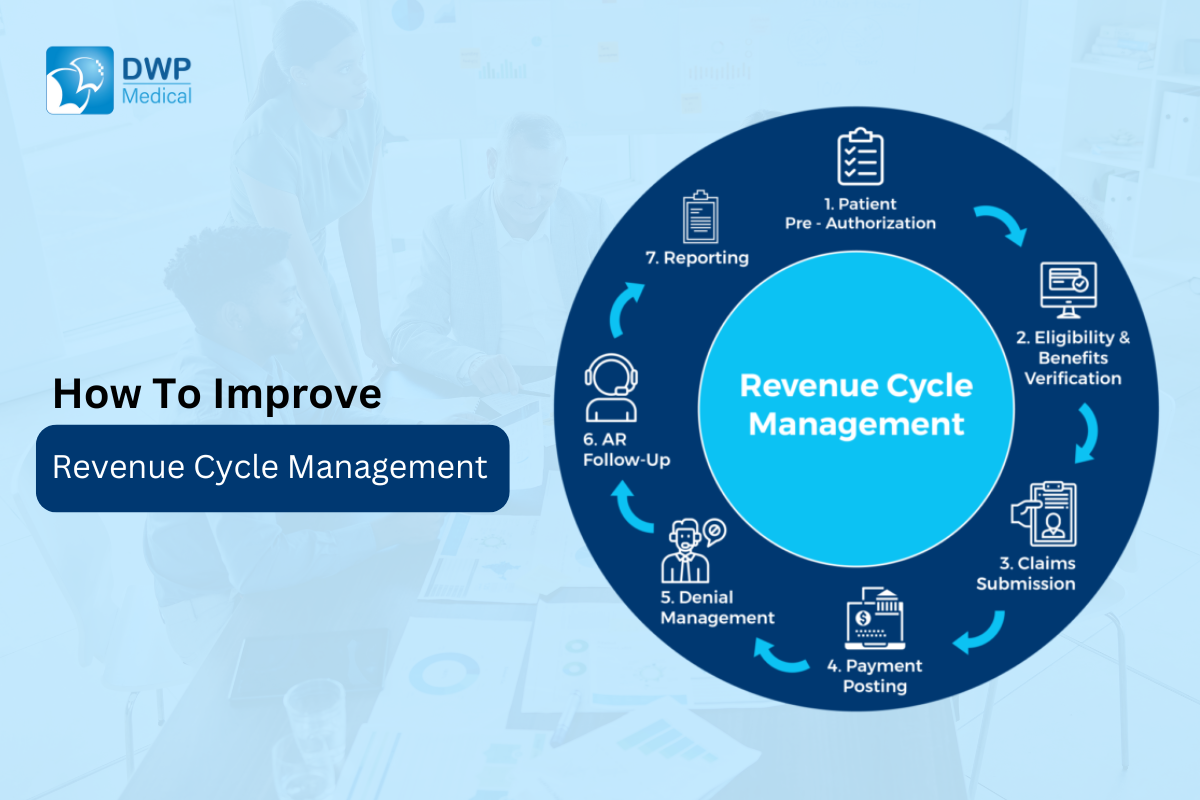Every healthcare organization needs this management to timely receive payment for the services they deliver.
Better management lowers business pressure while creating the stable income needed to provide excellent patient care. Here we will talk about some basic strategies to improve healthcare revenue cycle management and handle the usual providers’ financial issues.
Key Stages of the Revenue Cycle
This consists of financial procedures that help to manage finances effectively. To maintain financial success, a healthcare facility must handle sequential steps, from registering patients to managing outstanding payments.
All revenue cycle phases work together to deliver proper and quick payment results.
Why Better RCM Matters?
Proper RCM is important for a healthcare organization to maintain financial success. Revenue cycle management best practices help providers handle errors better and pay claims faster. This lets them deliver superior patient care.
On the other hand, inadequate revenue cycle management causes loss to the financial health of healthcare facilities and leads to unhappy patients.
Common Challenges in Revenue Cycle Management
Healthcare facilities face numerous difficulties in their revenue cycle operations, which reduces their productivity and financial gains. Addressing these problems will help us maintain good business health and economic stability.
The common challenges in RCM are:
- Denied Claims: Claims often fail to receive payment because providers make mistakes in their data.
- Billing Mistakes: Patients feel unhappy when their bill contains mistakes that slow down their payment reception.
- Compliance Issues: Healthcare organizations must keep learning about new rules affecting their work.
- Inefficient Processes: Basic work processes that are not organized well slow operations down and increase administrative expenses.
Improving Accuracy and Streamlining RCM
Medical professionals must confirm medical details correctly, as wrong information slows payment approval and delays money delivery. Moreover, staff need ongoing education from certified coders who must use the latest coding systems, including ICD-10.
Moreover, ongoing reviews help staff spot and solve problems, which leads to better financial records. A well-optimized revenue cycle management process helps deliver more efficient services and reduces staff mistakes.
In addition to this, technology tools like EHRs and PM systems in RCM in medical billing help automate processes. It also makes both patient data and operational processes more accurate and faster. However, KPI metrics like days in AR, denial rates, and claim resolution times show us how well our RCM works and where we can improve.
Training and Education: Building a Strong RCM Team
Your organization needs qualified people to manage this payment cycle. Staff training in medical coding standards and the latest technology updates gives the better RCM.
The Future of RCM in Healthcare
RCM’s future success depends on using the latest tools like predictive analytics, blockchain security, and AI systems to help staff make better choices. The industry will then better focus on serving patients while making all billing activities understandable.
Financial Impact of RCM
Good claims processing prevents denials and confirms healthcare providers receive their payments more quickly. You must send claims immediately, keep complete records, and actively follow up on them.
Organizations can reduce their denial rates by identifying claims patterns through testing and repairing their initial source. Healthcare providers need to perform immediate verification of insurance details if they want to handle income collection more efficiently. Automatic billing notices together with a variety of payment options ensure timely payments from healthcare providers.
A system of financial security demands that staff conduct routine checks on all money that has not received payment from patients.
A healthcare organization achieves financial success primarily through effective utilization of RCM. Defense revenue cycle system management produces quick payment collections which reduces financial losses and strengthens healthcare facilities’ money resources.
Hospital revenue cycle management solutions monitored by proper methods enable healthcare organizations to obtain payments they need. Healthcare organizations can use these funds for service maintenance while delivering improved hospital care.
Tips for Choosing the Right RCM Software
Your choice of system will improve hospital operations and yield financial benefits.
- Ease of Use: Pick software that shows steps clearly to help users begin work right when they start.
- System Integration: Look for a system that connects perfectly with your existing EHR and practice management.
- Scalability: Pick software that adapts as your practice expands.
- Compliance: Double-check that your software follows every Law and Healthcare Rule that applies now
- Reporting Capabilities: Choose systems with advanced data analysis tools to monitor your business success.
- Customer Support: Pick a partner who delivers complete training services and immediate help when needed.
How Outsourcing RCM Can Benefit Your Practice?
External RCM providers help organizations conserve staff and budget resources while achieving better work quality and savings through more efficient workflows. Professional billing firms use their expertise and resources to deliver complex tasks to healthcare practices.
Your practice financial performance will improve when you choose DWP as your Revenue Cycle Management partner. Here’s how their hospital revenue cycle management solutions can help:
- Streamlined Processes: The DWP team manages complex billing procedures through their state-of-the-art system platforms.
- Cost Savings: Your healthcare practice can boost patient care quality when you work with DWP to cut operational spending.
- Improved Accuracy: Call on DWP’s team to handle your claims process and get payments on time while reducing mistakes.
- Focus on Growth: When you shift your RCM work to DWP staff, your healthcare team will have time to expand its services and offer better patient care.
Contact DWP immediately to develop practice-specific financial efficiency tools that will help improve your healthcare revenue cycle management.
Legal and Regulatory Considerations in RCM
Healthcare organizations must respect HIPAA, Medicare, and Medicaid laws when managing their financial transactions. However, legal changes and performing routine audits protect us from penalties and keep our clients trusting us.
Conclusion
Healthcare organizations need good Revenue Cycle Management to stay profitable. Using modern technology, the right hospital revenue cycle management solutions will achieve faster payment cycles and better profits when they update collection practices and bill processing. Moreover, with proper staff education and performance monitoring, healthcare facilities can achieve better RCM results when keeping up with rules and regulations.
Success requires aligning technology systems with a focused use of human staff to achieve optimal results. Professional equipment and skilled workers will improve your organization’s RCM activities.
Ready to streamline your revenue cycle management? See how DWP Medical uses modern RCM tools to improve your cash flow while lowering administrative expenses.


